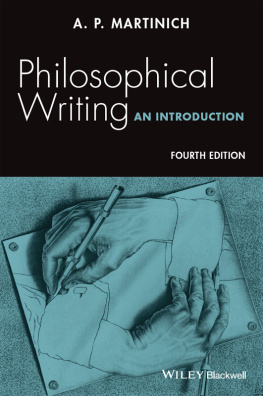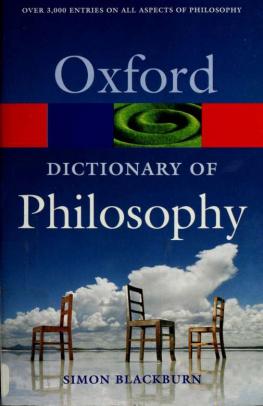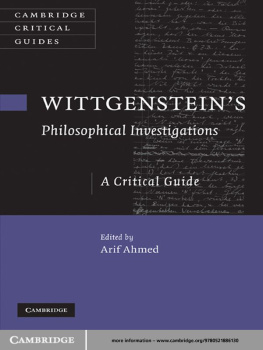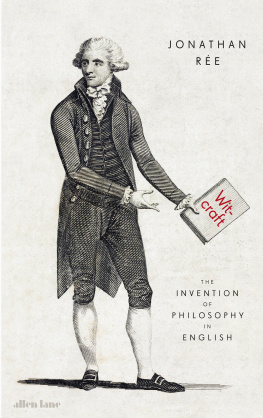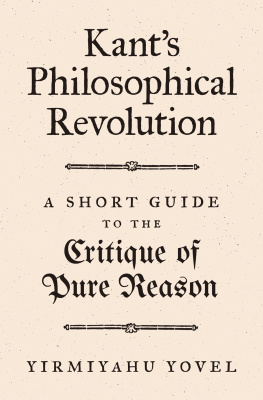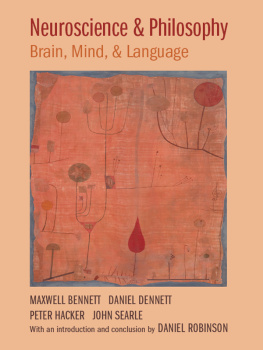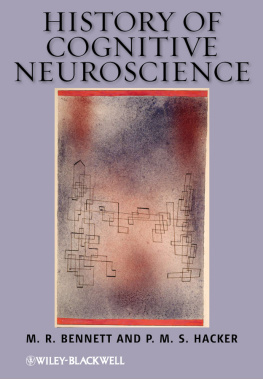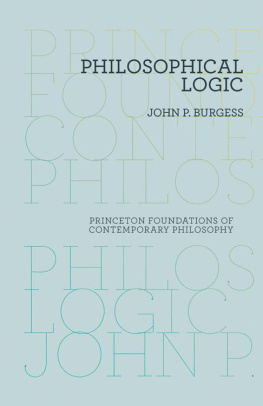Bennett, Jonathan , formerly Professor of Philosophy, Syracuse University
A Philosophical Guide to Conditionals
Print ISBN 0199258872, 2003
doi:10.1093/0199258872.001.0001
Abstract: Conditionals are of two basic kinds, often called 'indicative' and 'subjunctive'. This book expounds and evaluates the main literature about each kind. It eventually defends the view of Adams and Edgington that indicatives are devices for expressing subjective probabilities, and the view of Stalnaker and Lewis that subjunctives are statements about close possible worlds. But it also discusses other views, e.g. that indicatives are really material conditionals, and Goodman's approach to subjunctives.
Keywords: Adams,conditionals,Edgington,Goodman,indicative conditionals,Lewis,material conditionals,metaphysics,philosophy of language,possible worlds,probability,Stalnaker,subjunctive
A Philosophical Guide to Conditionals
end p.i
end p.ii
A Philosophical Guide to Conditionals
CLARENDON PRESS OXFORD
end p.iii

Great Clarendon Street, Oxford ox2 6dp
Oxford University Press is a department of the University of Oxford
It furthers the University's objective of excellence in research, scholarship,
and education by publishing worldwide in
Oxford New York
Auckland Bangkok Buenos Aires Cape Town Chennai
Dar es Salaam Delhi Hong Kong Istanbul Karachi Kolkata
Kuala Lumpur Madrid Melbourne Mexico City Mumbai Nairobi
So Paulo Shanghai Taipei Tokyo Toronto
Oxford is a registered trade mark of Oxford University Press
in the UK and in certain other countries
Published in the United States by
Oxford University Press Inc., New York
Jonathan Bennett 2003
The moral rights of the authors have been asserted
Database right Oxford University Press (maker)
First published 2003
All rights reserved. No part of this publication may be reproduced,
stored in a retrieval system, or transmitted, in any form or by any means,
without the prior permission in writing of Oxford University Press,
or as expressly permitted by law, or under terms agreed with the appropriate
reprographics rights organization. Enquiries concerning reproduction
outside the scope of the above should be sent to the Rights Department,
Oxford University Press, at the address above
You must not circulate this book in any other binding or cover
and you must impose this same condition on any acquirer
British Library Cataloguing in Publication Data
Data available
Library of Congress Cataloging in Publication Data
Bennett, Jonathan Francis.
A guide to conditionals/Jonathan Bennett.
p. cm.
Includes bibliographical references and indexes.
1. Conditionals (Logic) I. Title
BC199.C56 B46 2003 160dc21 2002042553
ISBN 0-19-925886-4 (alk. paper)
ISBN 0-19-925887-2 (pbk: alk. paper)
end p.iv
To the memory of David Lewis
fruitful philosopher, helpful teacher, good friend
end p.v
end p.vi
Preface
Perhaps a 'Guide' should cover its field in an even-handed manner, whereas the present work takes sides in some active debates. Still, I try to be informative about positions that I reject, fitting them into the picture and giving them their hour in court; so this book can serve as a guide to as much of the literature as I have been able to understand.
Why should anyone want to be helped to manage the literature on conditionals? My answer appears in 1.
There is more original work here than is usual in guides. I make no apology for that. I venture to remark that Chapter is, in my opinion, my weightiest original contribution to the understanding of conditionals.
Conditionals had a regular place in my tutorial teaching in Cambridge (1956-68), and I lectured on them a little at the University of British Columbia (1970-9). At Syracuse University (1979-97) they were the subject of five semester-long graduate seminars, the book-length notes for which grew through four rewritings to resemble a book in other ways too. Since retiring from teaching, I have consulted more philosophers, read more, thought harder and more carefully, and kneaded the material into better shape. Here it is, the best I can do, though Iris Murdoch was right: 'No philosophy book is ever finished, it is only abandoned.'
This Guide is aimed primarily at graduate students and senior undergraduates, but it may have something to offer also to their teachers.
Much philosophical writing on conditionals is, to put it vaguely, technical, and its authors have a facility with such things that has been denied to me. My painful crawl towards understanding may have helped me to be useful. In the literature as it stands, moves are often made with a swiftness that declares them to be obviously sound, whereas for many of us they are not obviously anything. My own struggles warn me against cutting expository corners in that way.
They also limit what I can tackle. My sad consciousness of the range of daunting technical logical work by van Fraassen, Thomason, Stalnaker, Skyrms, Pollock, Nute, McGee, Lewis, Levi, Jeffreys, Harper, Hall, Hjek, Gupta, Gibbard, Adams, and others has intensified through the years. I cannot get this work under my belt securely enough to be able to report on it decently, but two thoughts console me. Even if I did master those materials, to expound them for my intended readers would require an intolerably long book; and I do understand
end p.vii
and perhaps adequately expound the logical work that bears most directly on the philosophical themes that are my book's topic.
The last half-century's work on conditionals has been collegial. Joining in this tradition, I have shown parts of late drafts to people whose work I discuss, and they have been generous with help. I am grateful to Michael Tooley, William Lycan, Mark Lance, Richard Jeffrey, Frank Jackson, Allan Gibbard, Hartry Field, Brian Ellis, Wayne Davis, James Cargile, John Bigelow, Stephen J. Barker, and Ernest Adams. I should especially mention Dorothy Edgington, Adam Elga, Alan Hjek, the late David Lewis, Barry Loewer, and Robert Stalnaker, each of whom gave me what amounted to a series of tutorials which have enabled me to improve the work greatly. Although I have rejected some of my collaborators' offerings, and must take the final responsibility for everything in the book, I proclaim it as a joint effort.
Whenever I report what someone 'told me', 'warned me', or the like, I always mean that he or Dorothy did so in a personal communication.
Like my books The Act Itself and Learning from Six Philosophers, this one was composed in Nota Bene. This word-processing system, in which I have no financial interest, put at my finger-tips all the symbols that I needed. It is also faster, more powerful, more rational, more adult, and better adapted to academic needs than anything else on the market.
Critical and other remarks can be sent to me at jfb@mail.com.
end p.viii
Contents
| Introduction | Some questions | | Defining 'conditional' | | Challenging the ternary structure | | Two types of conditional |
|



